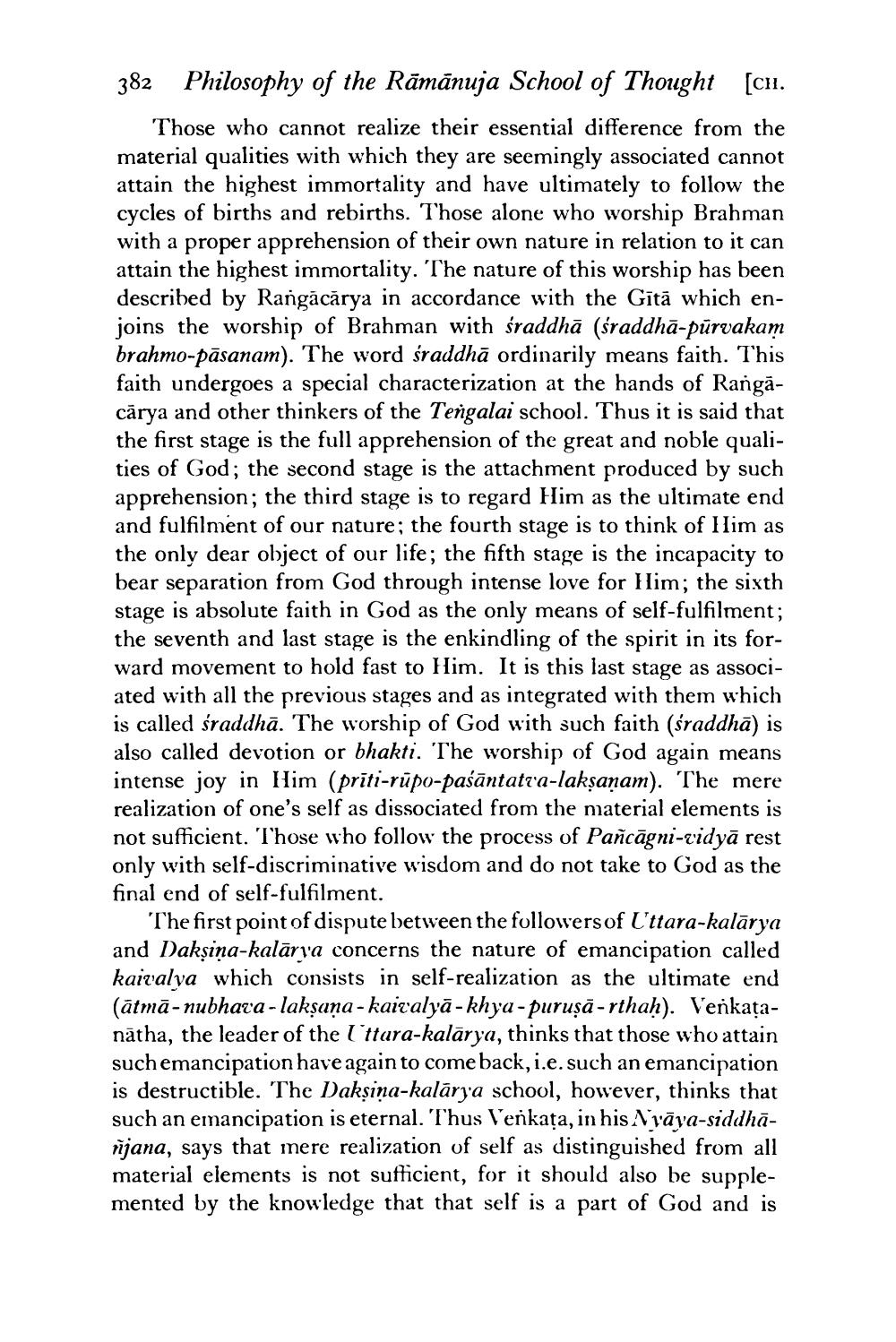________________
382 Philosophy of the Rāmānuja School of Thought [ch.
Those who cannot realize their essential difference from the material qualities with which they are seemingly associated cannot attain the highest immortality and have ultimately to follow the cycles of births and rebirths. Those alone who worship Brahman with a proper apprehension of their own nature in relation to it can attain the highest immortality. The nature of this worship has been described by Rangācārya in accordance with the Gītā which enjoins the worship of Brahman with śraddhā (sraddhā-pūrvakam brahmo-pāsanam). The word śraddhā ordinarily means faith. This faith undergoes a special characterization at the hands of Rangācārya and other thinkers of the Tengalai school. Thus it is said that the first stage is the full apprehension of the great and noble qualities of God; the second stage is the attachment produced by such apprehension; the third stage is to regard Him as the ultimate end and fulfilment of our nature; the fourth stage is to think of Him as the only dear object of our life; the fifth stage is the incapacity to bear separation from God through intense love for Him; the sixth stage is absolute faith in God as the only means of self-fulfilment; the seventh and last stage is the enkindling of the spirit in its forward movement to hold fast to Him. It is this last stage as associated with all the previous stages and as integrated with them which is called sraddhā. The worship of God with such faith (sraddhā) is also called devotion or bhakti. The worship of God again means intense joy in Him (prīti-rūpo-paśāntatra-lakṣaṇam). The mere realization of one's self as dissociated from the material elements is not sufficient. Those who follow the process of Pañcāgni-vidyā rest only with self-discriminative wisdom and do not take to God as the final end of self-fulfilment.
The first point of dispute between the followers of Uttara-kalārya and Dakșiņa-kalārva concerns the nature of emancipation called kaivalya which consists in self-realization as the ultimate end (ātmā-nubhava - laksana - kaivalyā - khya-puruşā - rthah). Venkatanātha, the leader of the l'ttara-kalārya, thinks that those who attain such emancipation have again to come back, i.e. such an emancipation is destructible. The Daksina-kalárya school, however, thinks that such an emancipation is eternal. Thus Venkața, in his Nvāya-siddhāījana, says that inere realization of self as distinguished from all material elements is not sufficient, for it should also be supplemented by the knowledge that that self is a part of God and is




